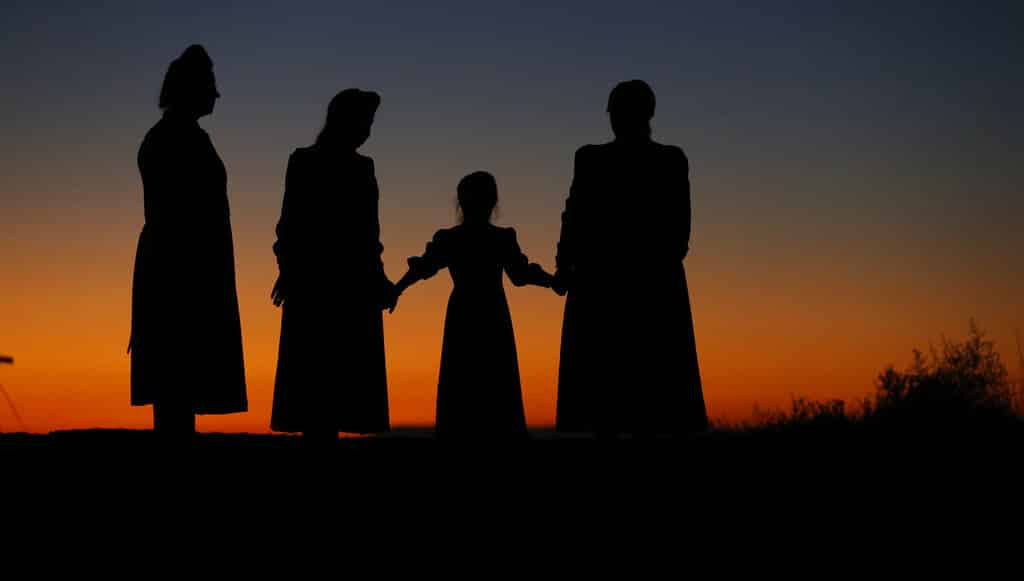In Musser v. Utah, 333 U.S. 94 (1948), Justice Robert Jackson wrote an opinion for the U.S. Supreme Court in which he vacated the conviction of three men for advocating polygamy and remanded the case back to Utah’s courts.
Jackson wrote that the state law against polygamy was “no narrowly drawn statute,” and said its vagueness could run afoul of the Due Process Clause of the Fourteenth Amendment because it fails to give adequate guidance to those who would be law-abiding, to advise defendants of the nature of the offense with which they are charged, or to guide courts in trying those who are accused.”
Joseph White Musser, Guy W. Musser, Charles Frederick Zitting and others had been convicted under the law for conspiring “to commit acts injurious to public morals,” which had included “conspiring to counsel, advise and practice polygamous or plural marriages.”
In Reynolds v. United States (1879), the U.S. Supreme Court had upheld laws against polygamy.
How far did anti-polygamy law go in barring advocacy for polygamy?
Jackson noted that the state had asked, and been granted, the opportunity for re-argument, during which it had pointed out that the specific law at issue should be “judged in the content of the whole body of common and statute law of the State.” Because the case originated in state court, Jackson thought that the state court should resolve it.
Justice Wiley Rutledge authored a dissent, which Justices William O. Douglas and Frank Murphy joined. Rutledge believed that the conviction also raised free speech issues under the First and 14th Amendments.
Noting that the state court had relied on its belief that the defendants had advocated and advanced polygamy, Rutledge did not believe that the court had adequately distinguished the right to advocate such a view from the direct solicitation of polygamous actions. Assuming that “such direct and personalized activity amounting to incitation to commit a crime may be proscribed by the state,” he observed that the defendants had actually been charged with “conspiracy to advocate and urge the practice of polygamy.”
“This advocacy was at least in part conducted in religious meetings where, although pressure may also have been applied to individuals, considerable general discussion of the religious duty to enter into plural marriages was carried on,” Rutledge wrote.
Although Utah courts had apparently drawn a line “between discussion and advocacy,” Rutledge argued that “The [U.S.] Constitution requires that the statute be limited more narrowly. At the very least the line must be drawn between advocacy and incitement, and even the state’s power to punish incitement may vary with the nature of the speech, whether persuasive or coercive, the nature of the wrong induced, whether violent or merely offensive to the mores, and the degree of probability that the substantive evil will result.”
Rutledge thought advocacy that doesn't 'incite' law-breaking is legal
Rutledge cited the Supreme Court’s decision in Bridges v. California (1941), which had overturned contempt convictions of individuals who had criticized pending judicial proceedings.
Observing that citizens in democratic governments have the right to advocate legal changes, Rutledge noted that some individuals think “that society can best protect itself by prohibiting only the substantive evil and relying on a completely free interchange of ideas as the best safeguard against demoralizing propaganda” and that others, including the courts of Utah, think, contrary to the First Amendment that “the state may prevent any conduct which induces people to violate the law, or any advocacy of unlawful activity.” Rutledge believed the proper approach was to take a middle path to “permit advocacy of lawbreaking, but only so long as the advocacy falls short of incitement.”
Because the Utah courts did not distinguish between the general advocacy of polygamy, and direct incitement to the practice, Rutledge believed the Supreme Court should overturn the convictions.
Rutledge’s position is consistent with the Supreme Court’s later decision in Brandenburg v. Ohio (1969), a case involving a speech by a member of the Ku Klux Klan, in which the court ruled that individuals had the right to advocate illegal conduct unless the speech is likely to incite “imminent lawless action.”
John R. Vile is a political science professor and dean of the Honors College at Middle Tennessee State University.

